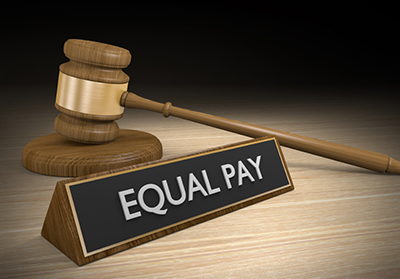Pay equity has put compensation and Human Resources managers in the hot seat for some time. Hopefully, they have gotten comfortable with being the center of attention because the focus on pay equity isn’t going away—at least not anytime soon. 
So, what does addressing the pay gap have to do with attorney-client privilege? Everything.
What Is Attorney-Client Privilege and Why Is It Important?
The main tool in any employer’s pay equity toolbox is an annual pay equity analysis that assesses pay across locations and positions. There are various types of pay equity analyses that serve different purposes and vary in terms of scope and depth.
Regardless of the purpose, pay equity analyses will reveal the unexplained pay differences between comparable employees and any deficiencies in the company’s pay practices. As a general matter, most companies prefer not to disclose these results. And those that are interested in making the results public, in some form, generally prefer to control the content and timing of the message. That is where attorney-client privilege comes in.
Create Confidentiality
Attorney-client privilege protects confidential communications between a client and its attorney for the purpose of obtaining or rendering legal advice.
Failure to establish and maintain the privilege exposes communications and attorney work products, such as the results of the analysis, as well as the methodology for assessing pay, to disclosure should the company’s pay practices and decision-making be subject to litigation.
Tips for Establishing and Maintaining Attorney-Client Privilege
Here are some helpful tips to keep in mind when conducting a practice equity analysys:
- In-house counsel is a critical member of the “privileged pay equity team.” However, in order to take full advantage of attorney-client privilege, the company should also hire outside counsel. In-house counsel often wears two hats: a legal hat and a business hat. When rendering advice on a pay equity project, it is often difficult to prove that in-house counsel was acting as an attorney rather than a business partner. There is no such concern with an outside attorney.
- The in-house counsel or other company representative should hire the outside counsel.
- In turn, outside counsel should hire the consulting expert, who will conduct the analysis. The expert’s communications should be to the outside attorney, not the company client. Expert invoices should be reviewed by the outside attorney. Advice ultimately rendered to the company client must be the outside attorney’s and not the expert’s.
- In order to establish and maintain confidentiality over the project, the in-house counsel, in consultation with outside counsel, should establish the “privilege team”—those officials, managers, and employees who will be involved in determining the parameters of the analysis, assessing the results, and implementing changes. We recommend starting with a core group and adding others as the project progresses and the need arises.
- In order to maintain confidentiality, communications should be on a need-to-know basis and only to members of the privilege team.
- All communications among members of the privilege team should be labeled “Privileged & Confidential” and should include outside counsel.
Proactive pay equity analyses are a critical tool for preventing your company from being the next target of a class action pay discrimination claim. They also provide helpful guidance on when and how to publicly disclose information about your company’s pay practices. However, if these analyses are not done under privilege, you lose control over when, how, and what is disclosed.
Learn how to proactively and strategically conduct a pay equity audit and correct discrepancies to minimize legal risks when you join FortneyScott’s Consuela Pinto and H. Juanita Beecher for the live webinar: Pay Equity Audits: What to Do Right Now to Minimize Legal Risks. This webinar will take place Thursday, March 26, 2020, click here to learn more or to register today!
 Consuela Pinto is a Shareholder at FortneyScott where she advises clients on the full range of equal employment opportunity laws with a particular focus on compliance with workplace laws and regulations, federal government investigations, pattern and practice systemic claims, and compliance with federal contractors’ affirmative action and non-discrimination obligations. Her extensive experience and expertise in the employment field is the result of practicing in both the private and government sectors for more than twenty years.Most recently, Pinto was a senior attorney at the U.S. Department of Labor in the National Office of the Solicitor where she was the Deputy Associate Solicitor in the Civil Rights and Labor Management Division. In her position at the Labor Department, Pinto advised DOL agencies on a wide range of regulatory, policy, and enforcement issues impacting a cross-section of workers, and Ms. Pinto also had significant managerial responsibilities. One of her key practice areas at DOL was advising the Office of Federal Contract Compliance Programs and the Office of the Solicitor on enforcement matters related to federal contractors’ equal employment opportunity obligations. |
